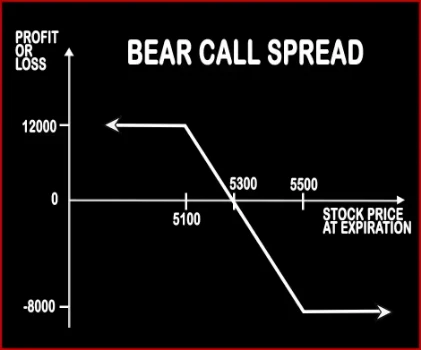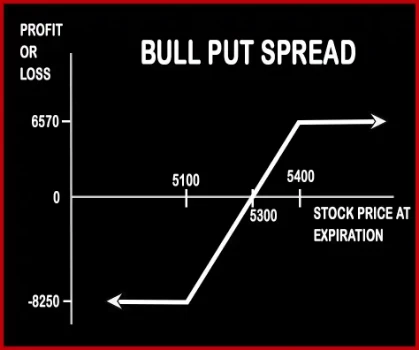Compare Strategies
| BEAR CALL SPREAD | BULL PUT SPREAD | |
|---|---|---|

|

|
|
| About Strategy |
Bear Call Spread Option StrategyBear Call Spread option trading strategy is used by a trader who is bearish in nature and expects the underlying asset to dip in the near future. This strategy includes buying of an ‘Out of the Money’ Call Option and selling one ‘In the Money’ Call Option of the same underlying asset and the same expiration date. When you write a call, you receive premium thereby r |
Bull Put Spread Option StrategyBull Put Spread option trading strategy is used by a trader who is bullish in nature and expects the underlying asset to move in an upward trend in the near future. This strategy includes buying of an ‘Out of the Money’ Put Option and selling of ‘In the Money’ Put Option of the same underlying asset and the same expiration date. When you write a Put, you will receive prem .. |
BEAR CALL SPREAD Vs BULL PUT SPREAD - Details
| BEAR CALL SPREAD | BULL PUT SPREAD | |
|---|---|---|
| Market View | Bearish | Bullish |
| Type (CE/PE) | CE (Call Option) | PE (Put Option) |
| Number Of Positions | 2 | 2 |
| Strategy Level | Beginners | Advance |
| Reward Profile | Limited | Limited |
| Risk Profile | Limited | Limited |
| Breakeven Point | Strike Price of Short Call + Net Premium Received | Strike price of short put - net premium paid |
BEAR CALL SPREAD Vs BULL PUT SPREAD - When & How to use ?
| BEAR CALL SPREAD | BULL PUT SPREAD | |
|---|---|---|
| Market View | Bearish | Bullish |
| When to use? | This strategy is used when you are bearish in market view. The strategy minimizes your risk in the event of prime movements going against your expectations. | Bull Put Spread strategy is used when you're of the view that the price of a particular underlying will rise, move sideways, or marginally fall. |
| Action | Buy OTM Call Option, Sell ITM Call Option | Buy OTM Put Option, Sell ITM Put Option |
| Breakeven Point | Strike Price of Short Call + Net Premium Received | Strike price of short put - net premium paid |
BEAR CALL SPREAD Vs BULL PUT SPREAD - Risk & Reward
| BEAR CALL SPREAD | BULL PUT SPREAD | |
|---|---|---|
| Maximum Profit Scenario | Max Profit = Net Premium Received - Commissions Paid | Max Profit = Net Premium Received |
| Maximum Loss Scenario | Maximum Loss = Long Call Strike Price - Short Call Strike Price - Net Premium Received | Max Loss = (Strike Price Put 1 - Strike Price of Put 2) - Net Premium Received |
| Risk | Limited | Limited |
| Reward | Limited | Limited |
BEAR CALL SPREAD Vs BULL PUT SPREAD - Strategy Pros & Cons
| BEAR CALL SPREAD | BULL PUT SPREAD | |
|---|---|---|
| Similar Strategies | Bear Put Spread, Bull Call Spread | Bull Call Spread, Bear Put Spread, Collar |
| Disadvantage | • Limited amount of profit. • Margin requirement, more commission charges. | • Limited profit potential. • In loss situations, time decay may go against you. |
| Advantages | • This strategy takes advantage of time decay. • Investors can get profit in a flat market scenario. • Investors can earn options premium income with a lower degree of risk. | • Benefit from the time decay in profit positions but harmful in loss positions. • Profitable when underlying stock price rises, move sideways or marginal drop. • Reduce the downside risk. |